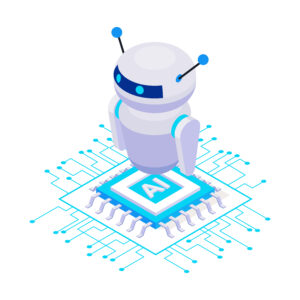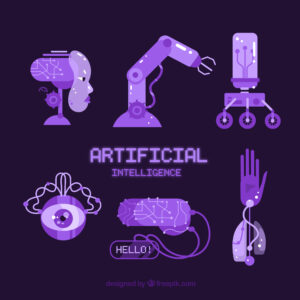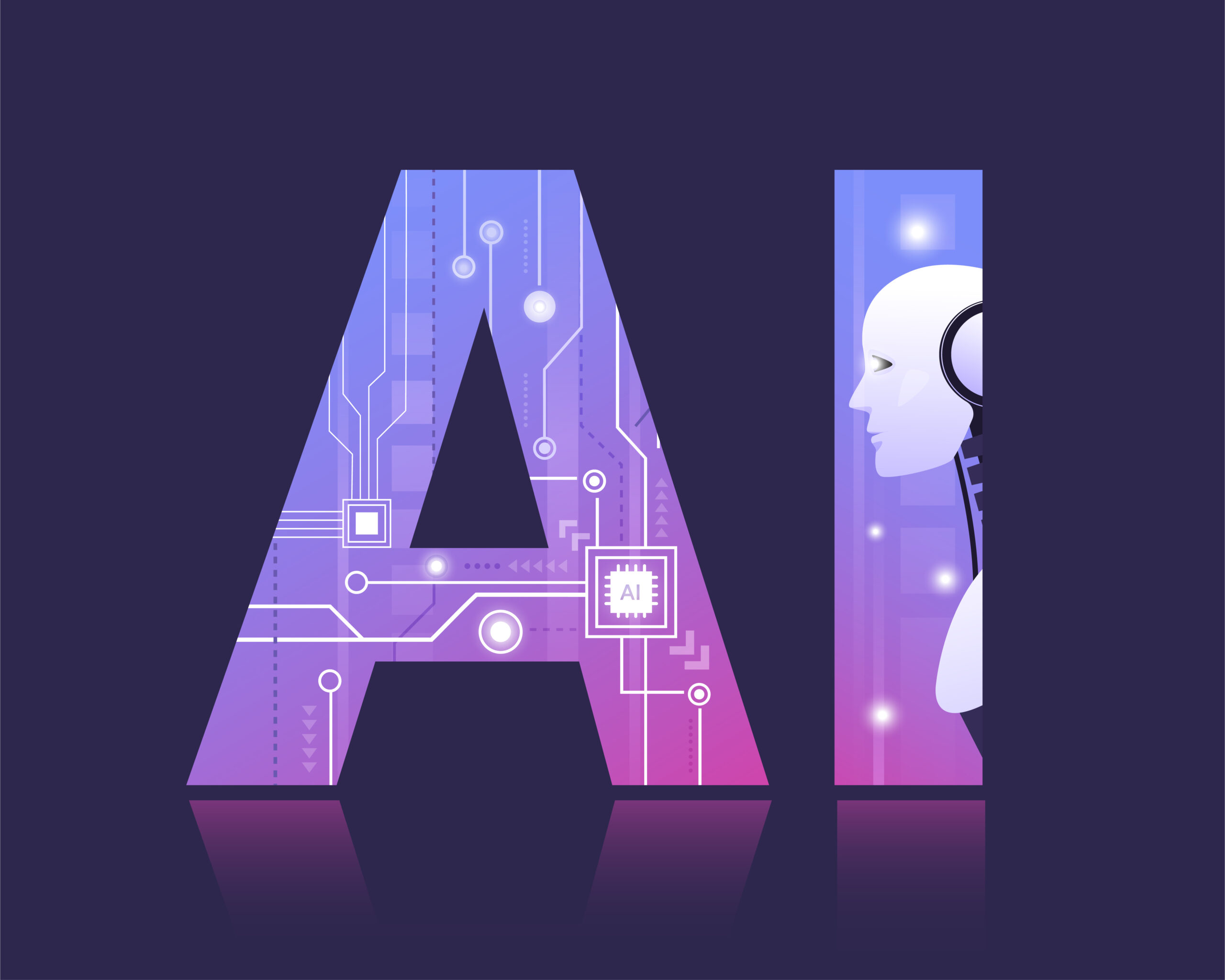How to Use AI Tools to Boost Your Business in 2023
Artificial intelligence (AI) is no longer a futuristic concept, but a reality that is transforming the world of business. AI tools can help entrepreneurs and businesses of all sizes to improve their efficiency, productivity, creativity, and profitability. Whether you want to automate your tasks, generate content, analyze data, or enhance your customer experience, there is an AI tool for you.
But how do you choose the right AI tool for your business? And how do you use it effectively to achieve your goals? In this article, we will explore some of the best AI tools for business in 2023, and how you can use them to boost your business performance and growth.
What are AI tools for business?
AI tools for business are software applications that use artificial intelligence techniques such as machine learning, natural language processing, computer vision, or speech recognition to perform tasks that normally require human intelligence or skills. AI tools can help you with various aspects of your business, such as:
- Marketing: AI tools can help you create engaging and personalized content, ads, emails, social media posts, videos, and more. They can also help you optimize your campaigns, target your audience, and measure your results.
- Sales: AI tools can help you generate leads, qualify prospects, close deals, and upsell customers. They can also help you automate your sales processes, such as scheduling appointments, sending follow-ups, and creating proposals.
- Customer service: AI tools can help you provide faster and better customer support, by using chatbots, voice assistants, sentiment analysis, or feedback tools. They can also help you improve your customer satisfaction, loyalty, and retention.
- Operations: AI tools can help you streamline your workflows, automate your tasks, manage your projects, and collaborate with your team. They can also help you improve your quality, accuracy, and security.
- Analytics: AI tools can help you collect, process, analyze, and visualize your data. They can also help you discover insights, trends, patterns, and predictions that can help you make better decisions and optimize your performance.

Why should you use AI tools for business?
AI tools for business can offer you many benefits, such as:
- Saving time and money: AI tools can help you reduce your workload, eliminate human errors, and lower your costs. They can also help you increase your speed, efficiency, and productivity.
- Enhancing creativity and innovation: AI tools can help you generate new ideas, solutions, products, or services. They can also help you improve your quality, diversity, and originality.
- Boosting performance and growth: AI tools can help you improve your results, outcomes, and impact. They can also help you increase your revenue, profit, and market share.
How to choose the best AI tools for business?
There are many AI tools for business available in the market today. However, not all of them are suitable for your needs or goals. To choose the best AI tools for business for your situation, you should consider the following factors:
- Your objectives: What are you trying to achieve with the AI tool? What are the specific problems or challenges that you want to solve or overcome? What are the key metrics or indicators that you want to improve or optimize?
- Your budget: How much are you willing to spend on the AI tool? What is the return on investment (ROI) that you expect from the AI tool? How long will it take to see the results or benefits from the AI tool?
- Your resources: What are the technical requirements or specifications of the AI tool? Do you have the necessary hardware or software to run the AI tool? Do you have the skills or expertise to use or manage the AI tool?
- Your preferences: What are the features or functionalities that you want or need from the AI tool? What are the design or usability aspects that you like or dislike from the AI tool? What are the reviews or ratings that other users have given to the AI tool?
How to use AI tools for business effectively?
Once you have chosen the best AI tools for business for your situation, you should follow these steps to use them effectively:
- Learn how to use them: Before using any AI tool for business, you should familiarize yourself with its interface, functions, capabilities, and limitations. You should also read the documentation, tutorials, or guides that are provided by the developer or vendor of the AI tool.
- Test them out: Before using any AI tool for business for real, you should try it out on a small scale, with a sample data set, or a pilot project. You should also monitor its performance, accuracy, and reliability, and compare it with other alternatives or benchmarks.
- Integrate them with your workflow: Once you are satisfied with any AI tool for business, you should integrate it with your existing workflow, processes, or systems. You should also communicate with your team, partners, or customers about the changes or benefits that the AI tool will bring to your business.
- Evaluate and improve them: After using any AI tool for business for a while, you should evaluate its impact, effectiveness, and efficiency. You should also collect feedback, data, or metrics that can help you measure your progress or success. You should also look for ways to improve or optimize the AI tool, by updating it, customizing it, or adding new features or functions.
Also Read: The Ultimate Guide to Tanning Beds: Safe, Effective, and Radiant Skin

What are some of the best AI tools for business in 2023?
Here are some of the best AI tools for business in 2023, categorized by their main functions or applications:
AI tools for marketing:
- ChatGPT: ChatGPT is one of the most popular and powerful AI writing assistants, that can help you create engaging and personalized content, such as blog posts, emails, social media posts, ads, and more. ChatGPT uses a large language model (LLM) that can generate natural and fluent text based on your input or prompt. You can also use ChatGPT to analyze data, proofread your content, or use various plugins to enhance your writing. ChatGPT is free to use for up to 3 documents per day, and you can upgrade to a premium plan for more features and benefits.
- Jasper: Jasper is another great AI writing assistant, that can help you create high-quality and SEO-optimized content, such as articles, headlines, slogans, captions, and more. Jasper uses a LLM that can produce long-form content (up to 1,500 words) in less than 15 minutes. Jasper also has more than 50 AI content generation templates, that can help you write for different purposes and audiences. Jasper is free to use for up to 5 documents per month, and you can upgrade to a premium plan for more features and benefits.
- Pictory: Pictory is an AI video generator, that can help you easily create and edit high-quality videos. Pictory can turn your script or article into an engaging video, with images, music, voice-over, and captions. You can also use Pictory to edit your videos using text, which is perfect for webinars, podcasts, Zoom recordings, and more. Pictory also allows you to create shareable video highlight reels, automatically caption and summarize your videos, and customize your video style and branding. Pictory is free to use for up to 10 videos per month, and you can upgrade to a premium plan for more features and benefits.
- Synthesia: Synthesia is another amazing AI video tool, that can help you create realistic and personalized videos with synthetic actors. Synthesia can generate videos based on your text or script, with a choice of over 100 actors in different languages and accents. You can also use Synthesia to add your own face or voice to the videos, or upload your own images or videos as backgrounds. Synthesia is ideal for creating explainer videos, testimonials, ads, presentations, and more. Synthesia is free to use for up to 10 minutes of video per month, and you can upgrade to a premium plan for more features and benefits.
Tools for sales:
- BreezyHR: BreezyHR is an AI HR software that is beneficial for the hiring needs of companies. BreezyHR can help you automate your recruitment process, from sourcing candidates, screening resumes, scheduling interviews, sending offers, and onboarding new hires. BreezyHR also uses AI to match candidates with your job requirements, rank them by their fit score, and suggest the best ones for your consideration. BreezyHR also integrates with other tools such as LinkedIn, Gmail, Slack, Zoom, and more. BreezyHR is free to use for up to one active job posting per month, and you can upgrade to a premium plan for more features and benefits5.
- AdCreative.ai: AdCreative.ai is an AI ad generator that can help you create effective and catchy ads for Google Ads or Facebook Ads. AdCreative.ai can generate ads based on your keywords or product description, with a choice of different tones of voice and emotions. AdCreative.ai also provides suggestions for headlines, descriptions, images, and calls-to-action that can increase your click-through rate (CTR) and conversion rate (CVR). AdCreative.ai is free to use for up to 10 ads per month, and you can upgrade to a premium plan for more features and benefits.
- SurveySparrow: SurveySparrow is an AI survey tool that can help you collect feedback from your customers, employees, or prospects. SurveySparrow can help you create engaging and interactive surveys, with a choice of different question types, templates, and themes. SurveySparrow also uses AI to analyze your survey responses, and provide insights, recommendations, and reports that can help you improve your customer satisfaction, loyalty, retention, or employee engagement. SurveySparrow offers a free plan for up to 100 responses per month, and you can upgrade to a premium plan for more features and benefits.
AI tools for customer service:
- Replika: Replika is an AI chatbot that can help you create a personalized and empathetic connection with your customers. Replika can chat with your customers in natural and conversational language, and learn from their preferences, feedback, and emotions. Replika can also help you provide 24/7 customer support, answer FAQs, resolve issues, or collect leads. Replika is free to use for up to 10,000 messages per month, and you can upgrade to a premium plan for more features and benefits.
- Rasa: Rasa is an open-source AI framework that can help you build your own custom chatbots or voice assistants. Rasa can help you design, train, test, and deploy your chatbots or voice assistants, with a choice of different languages, channels, and integrations. Rasa also uses AI to understand the intent and context of your customers’ queries, and provide relevant and personalized responses. Rasa offers a free community edition for unlimited usage, and a paid enterprise edition for more features and benefits.
- Loom: Loom is an AI video tool that can help you communicate better with your customers. Loom can help you record and share quick and easy videos of your screen, camera, or both. You can use Loom to explain your products or services, demonstrate your features or benefits, or provide feedback or guidance. Loom also allows you to track the views, reactions, and comments of your videos, and integrate them with other tools such as Gmail, Slack, Notion, and more. Loom offers a free plan for up to 100 videos per month, and a paid plan for more features and benefits.
Tools for operations:
- Zapier: Zapier is an AI automation tool that can help you connect and automate your apps and workflows. Zapier can help you create workflows (called zaps) that trigger actions based on events or conditions. You can use Zapier to automate tasks such as sending emails, creating documents, updating spreadsheets, posting on social media, and more. Zapier supports over 3,000 apps such as Gmail, Google Drive, Dropbox, Slack, Trello, Mailchimp, and more. Zapier offers a free plan for up to 100 tasks per month, and a paid plan for more features and benefits.
- Airtable: Airtable is an AI spreadsheet tool that can help you organize and manage your projects and data. Airtable can help you create spreadsheets (called bases) that can store data in different formats such as text, numbers, dates, images, files, checkboxes, ratings, and more. You can also use Airtable to create views (such as grid, gallery, calendar, kanban, form, or chart) that can display your data in different ways. Airtable also allows you to collaborate with your team members or clients on your bases in real-time. Airtable offers a free plan for up to 1,200 records per base and 2 GB of attachment space per base. You can upgrade to a paid plan for more features and benefits.
- Notion: Notion is an AI workspace tool that can help you create and share documents, notes, tasks, databases, and more. Notion can help you create pages (called blocks) that can contain different types of content such as text, images, videos, tables, lists, charts, and more. You can also use Notion to create templates (such as to-do list, project plan, meeting notes, or resume) that can help you save time and effort. Notion also allows you to collaborate with your team members or clients on your pages in real-time. Notion offers a free plan for up to 1,000 blocks and 5 MB of file uploads per month. You can upgrade to a paid plan for more features and benefits.

AI tools for analytics:
- Tableau: Tableau is an AI data visualization tool that can help you create and share interactive dashboards and reports. Tableau can help you connect to various data sources such as files, databases, cloud services, or web data. You can also use Tableau to explore, analyze, and visualize your data using different charts, maps, graphs, and more. Tableau also uses AI to provide suggestions, insights, and forecasts that can help you make better decisions and optimize your performance. Tableau offers a free trial for 14 days, and a paid plan for more features and benefits.
- MonkeyLearn: MonkeyLearn is an AI text analysis tool that can help you extract insights from your text data. MonkeyLearn can help you perform tasks such as sentiment analysis, topic classification, keyword extraction, entity recognition, and more. You can also use MonkeyLearn to create your own custom models using your own data and criteria. MonkeyLearn offers a free plan for up to 300 queries per month, and a paid plan for more features and benefits.
- Google Analytics: Google Analytics is an AI web analytics tool that can help you measure and improve your website or app performance. Google Analytics can help you track and report on various metrics such as traffic, conversions, bounce rate, user behavior, and more. You can also use Google Analytics to set goals, run experiments, or create segments that can help you optimize your website or app. Google Analytics offers a free plan for up to 10 million hits per month per property, and a paid plan for more features and benefits.
Tools for accounting:
- Botkeeper: Botkeeper is an AI-powered bookkeeping service that can automate your accounting tasks, such as invoicing, expense tracking, reporting, and more. It can also integrate with your bank accounts, credit cards, payroll, and other software to provide you with real-time and accurate financial data.
- Xero: Xero is an AI-powered accounting software that can help you run your business online. It can help you manage your cash flow, invoices, bills, taxes, and more. It can also connect with over 800 apps and services to streamline your workflow and collaboration.
- Wave: Wave is an AI-powered financial software that can help you manage your personal and business finances. It can help you create and send invoices, track payments, scan receipts, pay employees, and more. It can also provide you with insights and reports to help you understand your financial performance and health.
AI tools for human resources:
- Eightfold: Eightfold is an AI-powered talent intelligence platform that can help you attract, retain, and develop your workforce. It can help you find and hire the best candidates for your roles, based on their skills, potential, and fit. It can also help you improve your employee engagement, diversity, and career growth.
- Lattice: Lattice is an AI-powered performance management software that can help you align your team’s goals, feedback, and recognition. It can help you set and track OKRs (objectives and key results), conduct regular check-ins and reviews, and celebrate achievements. It can also help you identify and address performance issues and gaps.
- Culture Amp: Culture Amp is an AI-powered employee feedback platform that can help you measure and improve your employee experience. It can help you collect and analyze feedback from surveys, polls, or conversations. It can also provide you with insights and actions to help you improve your employee engagement, retention, and productivity.
Tools for project management:
- Asana: Asana is an AI-powered project management software that can help you organize and coordinate your work. It can help you create and assign tasks, set deadlines and priorities, track progress and status, and communicate with your team. It can also integrate with other tools and platforms to automate your workflow and collaboration.
- Monday.com: Monday.com is an AI-powered work management platform that can help you manage any type of project or process. It can help you create and customize workflows, boards, dashboards, and automations to suit your needs. It can also provide you with insights and reports to help you optimize your performance and results.
- Wrike: Wrike is an AI-powered project management software that can help you manage complex projects with ease. It can help you plan and schedule your projects, allocate resources, track time and budget, collaborate with your team, and deliver quality outcomes. It can also use AI to predict risks, suggest solutions, and prioritize tasks.

Conclusion:
In conclusion, the world of business in 2023 is witnessing a transformative wave driven by the integration of artificial intelligence. As we’ve explored, AI tools are no longer a luxury but a necessity across various domains within business operations. From streamlining financial management with tools like Botkeeper, Xero, and Wave, to elevating human resources practices through Eightfold, Lattice, and Culture Amp, and finally, ensuring the seamless execution of projects with Asana, Monday.com, and Wrike, these AI-powered solutions are revolutionizing the way businesses operate.
The potential for increased efficiency, productivity, and data-driven decision-making is undeniable. The future of business belongs to those who embrace these technologies and harness their power to stay competitive and agile in an ever-evolving landscape. The possibilities are boundless, and the journey of innovation is only just beginning.






One thought on “How to Use AI Tools to Boost Your Business in 2023”